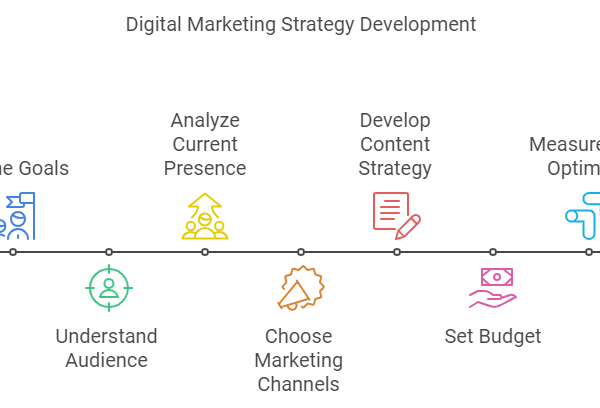
Career counseling is an essential process that helps individuals make informed decisions about their professional paths. It involves understanding personal skills, values, and interests to align them with a career that provides satisfaction and growth. In a rapidly changing job market, it’s more important than ever for individuals to have guidance when navigating their careers. Career counseling plays a pivotal role in helping people not only find the right career path but also thrive in it.
What is Career Counseling?
At its core, career counseling is a process that aids individuals in understanding and managing their career development. This includes choosing a profession, preparing for career transitions, and planning for future goals. Counselors work with clients to assess their abilities, skills, and interests to help them select a career that aligns with their personal and professional aspirations.
Career counseling is not just about landing a job; it’s about creating a long-term plan that aligns with one’s personality, values, and goals. Whether you’re a student selecting a field of study, a mid-career professional seeking change, or someone simply interested in professional growth, career counseling offers valuable insights.
Why Career Counseling Matters in Today’s World
The job market today is more complex than ever before. With new industries emerging and traditional ones evolving, the choices available to individuals have grown significantly. This vast range of options can be overwhelming, making it difficult for individuals to make informed career decisions. Career counseling helps in this context by offering professional advice that leads to better decision-making.
One of the key reasons why career counseling is so important is because it helps individuals understand themselves better. Through career counseling, individuals can identify their strengths, weaknesses, interests, and values. This understanding is crucial when selecting a career that provides long-term satisfaction. Moreover, career counseling equips individuals with the tools they need to continuously assess their professional lives, ensuring they remain on the right path as their careers evolve.
In a competitive world, where industries and job requirements change rapidly, professional guidance can offer a significant advantage. Career counseling helps individuals stay adaptable and better equipped to meet the demands of the evolving job market.
How to Choose a Career Counselor
Choosing the right career counselor is a crucial step in the career counseling process. Not every counselor will be the right fit, and it’s important to find someone whose expertise aligns with your specific needs. Here are some tips on selecting a career counselor:
- Credentials and Experience: Look for a career counselor with relevant qualifications and experience. Certified career counselors often hold degrees in psychology, counseling, or human resources and are trained in the specific techniques used in career counseling.
- Specialization: Some counselors specialize in working with specific groups, such as high school students, mid-career professionals, or people making career transitions. Depending on your needs, you may want to seek out a counselor who has experience working with individuals in similar situations to yours.
- Personal Fit: The relationship between you and your counselor is important. The counselor should be someone you feel comfortable with and confident in. A good career counselor will listen to your concerns, offer objective feedback, and help guide you without pushing their own agenda.
- Services Offered: Check the range of services the counselor provides. Some counselors offer aptitude tests, career workshops, resume writing, and interview preparation services. Others may focus more on providing one-on-one counseling sessions.
By choosing a career counselor who understands your needs and goals, you are more likely to receive valuable advice that helps guide your career journey.
The Role of Self-Assessment in Career Counseling
A key part of the career counseling process is self-assessment. Self-assessment tools help individuals better understand their strengths, weaknesses, interests, and values. These tools often include:
- Aptitude Tests: These assess your natural abilities in areas such as reasoning, problem-solving, and verbal skills. Aptitude tests can provide insights into which careers might be a good match for your abilities.
- Interest Inventories: These assessments measure your preferences in various work-related activities, helping you discover careers that align with your interests.
- Personality Assessments: Personality plays a significant role in job satisfaction. Personality assessments, such as the Myers-Briggs Type Indicator (MBTI), can help you understand how your personality traits align with specific job roles.
- Values Assessment: Understanding what you value most in your work life (e.g., job security, creativity, flexibility) can guide you toward a career that satisfies these values.
By using these tools, career counselors provide clients with a comprehensive understanding of their potential career paths. The process doesn’t just focus on identifying strengths; it also addresses areas where development is needed, making individuals better prepared for future job challenges.
Building a Career Plan with the Help of a Counselor
Once the self-assessment phase is complete, the next step in the career counseling process is to create a concrete career plan. A career counselor helps individuals set realistic and achievable career goals, based on the results of their assessments and their personal interests.
- Goal Setting: Setting clear, realistic career goals is an essential part of career planning. Counselors help break these goals down into manageable steps, ensuring that individuals know exactly what actions to take in the short, medium, and long term.
- Career Exploration: Career counseling involves exploring different industries and roles. Counselors may provide information about various careers, including job descriptions, salary expectations, required education and skills, and long-term career outlooks.
- Skill Development: Some career paths require specific skills or qualifications. Counselors can guide individuals in obtaining the necessary education or training, whether through formal education, certification programs, or on-the-job training.
- Monitoring Progress: Career counseling doesn’t end once a career path has been chosen. Regular sessions with a counselor help individuals stay on track, reassess their goals, and adjust their plans as needed.
Conclusion
In today’s dynamic job market, career counseling for students is more important than ever. Whether you are just starting your professional journey or are at a crossroads in your career, career counseling can provide valuable insights that help you make informed decisions. By understanding your strengths, interests, and values through the career counseling process, you can build a career path that leads to personal and professional fulfillment. The guidance provided by professional career counselors is a vital tool in ensuring long-term career success.











